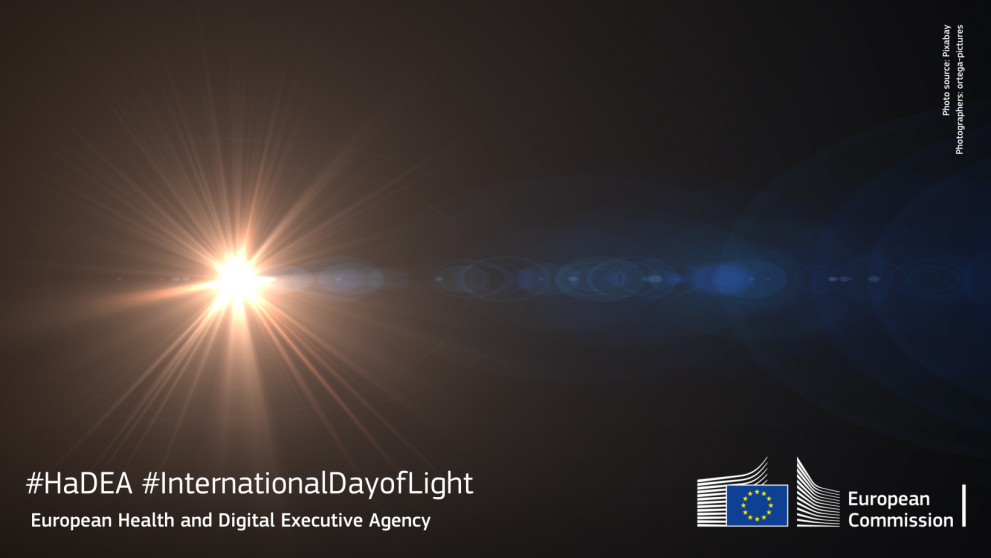
The study of light has brought technological advancement across different sectors of human life: energy, medical diagnostics and treatments, digital communication, culture and art, education and many more.
The aim of the International Day of Light, celebrated annually on 16 May, is to strengthen scientific cooperation and harness its potential to foster peace and sustainable development.
Today we focus on its applications in the fields of advanced materials, energy and innovation. The objective that they have in common is to develop materials and manufacturing processes that can make the European industry more efficient, sustainable, and competitive.
What are the challenges that industry and the energy sector are facing?
One of the most pressing challenges for the EU is to develop a low-carbon electricity system, where energy storage will play a key role. Energy storage is a great solution to provide a back up to intermittent renewable energy supply, adding more flexibility to our energy supply.
In the specific case of chemical energy storage, electrical energy gets transformed into chemical energy carriers. At the end of the process, the primary electric energy can be reused for re-electrification, heating and mobility.
Another issue faced by the European industry is to keep technologies such as high efficiency solar energy harvesting (high-efficiency photo-voltaics (PV) or concentrated solar power (CSP)) cost-competitive under suitable electricity market conditions.
Advanced materials and processes are crucial to secure a competitive and sustainable energy system in the EU. They will also allow the European materials supply sector to expand its industrial leadership towards the next generation of solar energy harvesting.
The Projects
Below are some Horizon 2020 projects managed by HaDEA that are tackling these issues developing the appropriate materials and the adequate innovative technologies:
- ARCIGS-M: the project name stands for ‘Advanced architectures for ultra-thin high-efficiency CIGS solar cells with high Manufacturability’. ARCIGS-M’s goal is to develop innovative advanced materials and nanotechnologies for the building-integrated photovoltaics (BIPV) sector. These novel functional materials and material combinations are designed to increase efficiency and stability of BIPV systems, enhance performance of materials while maintaining manufacturability through reduced production costs.
- FotoH2: on the market there are currently no technologies that allow cost-effective, solar-driven H2 production – such as photoelectrochemical separation of water into H2 and O2. The objective of FotoH2 is to prototype and validate a mass-deployable solar H2 production technology in the form of flat solar panels, in order to overcome the main obstacles to commercialisation:
- low solar-to-hydrogen efficiency
- expensive electrode materials
- fast degradation of prototypes
- energy losses in separating H2 from O2 and water vapour in the output stream.
- NEXTOWER: the project is introducing a set of innovative materials that boost the performance of atmospheric air-based concentrated solar power (CSP) systems and make them commercially viable. Tower systems are amongst them, and they are particularly appealing for the great environmental compatibility and tremendous potential for efficient electrical and thermal power generation. To address the limitations of such systems, NEXTOWER takes a comprehensive conceptual and manufacturing approach that will optimize their performance, durability and thermodynamic efficiency, aiming to keep them maintenance-free for as long as 25 years.
Background information
Horizon 2020 (H2020) was the EU’s multiannual funding programme between 2014 and 2020. H2020 provided Research and Innovation (R&I) funding for multi-national collaboration projects as well as for individual researchers and SMEs via special funding instruments. Horizon 2020 has been replaced by the Horizon Europe Programme, which will run until 2027.
Relevant links
Advanced materials and chemicals | European Commission (europa.eu)
Details
- Publication date
- 16 May 2022
- Author
- European Health and Digital Executive Agency
- Programme Sector
- Industry
- Programme
- Horizon Europe Cluster 4: Industry
- Tags
- EUFunded
- Industrial research
- Innovation
